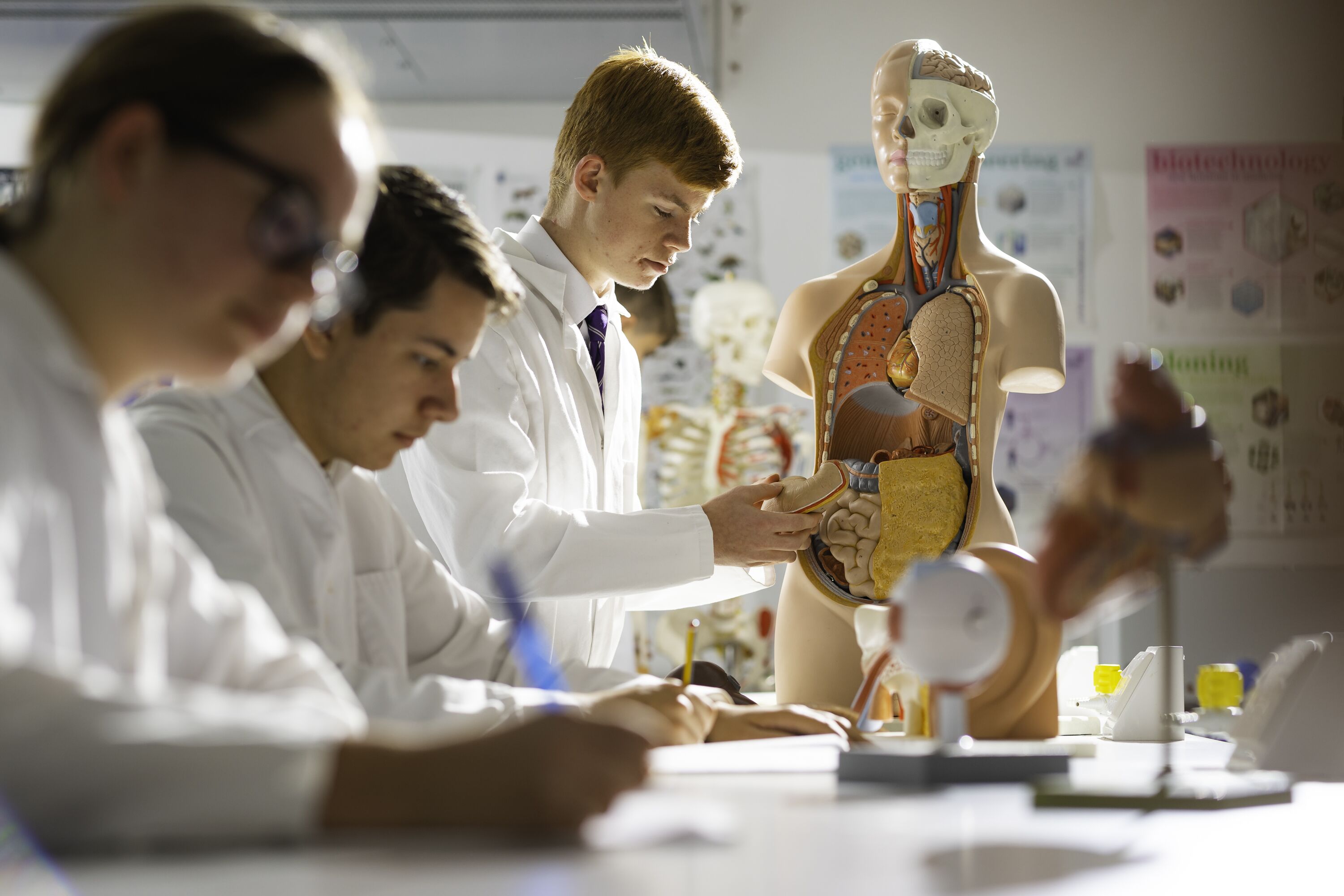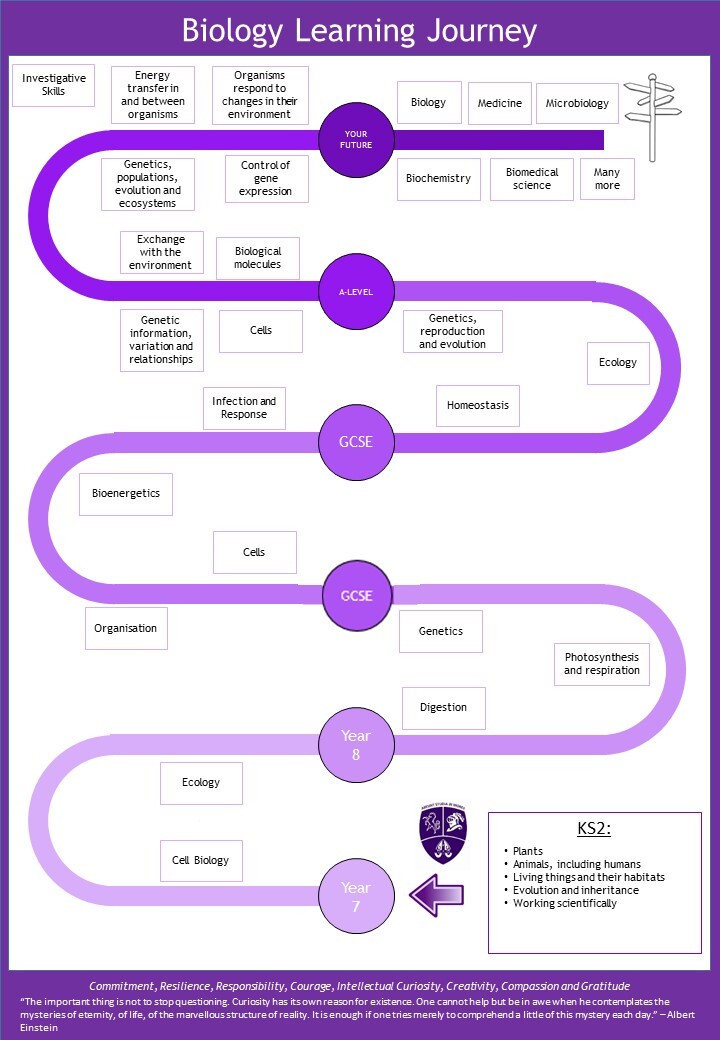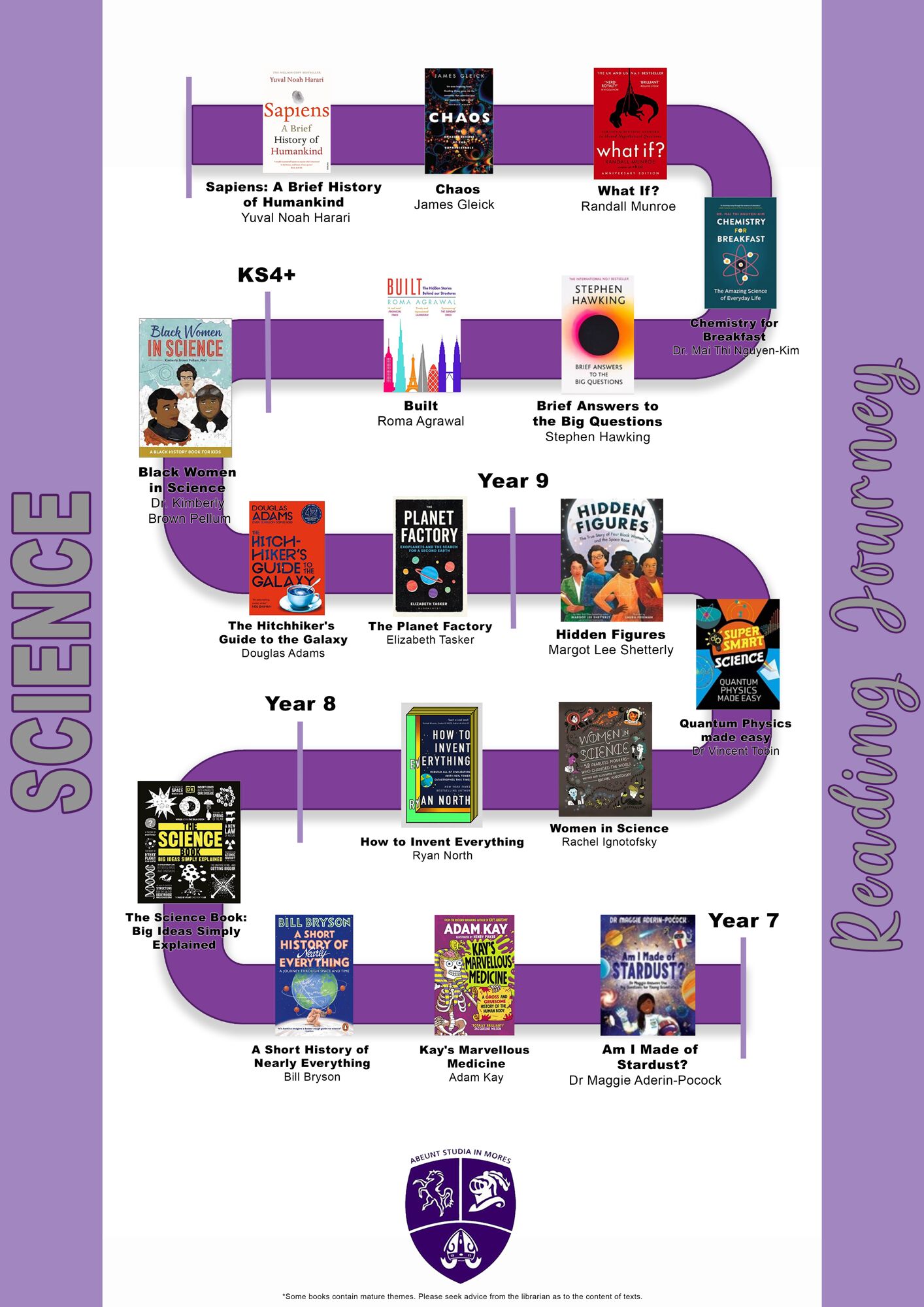- Home
- Academic Excellence
- Subject Information
- Biology
Biology

Curriculum Vision
“Our world is built on biology, and once we understand it, it becomes a technology”.
Biology contributes to the school curriculum by developing a comprehensive knowledge of a large range of content, as well as excellence in an array of skills. Students develop highly adaptable application skills, are able to analyse data adeptly and evaluate methodologies, data and conclusions very effectively. In addition, scientific practical techniques and understanding of investigative procedures are an important focus. The vision of the Biology department is to continue to build students’ knowledge and skills. The skill sets developed are highly adaptable and effectively prepare them for their future education and employment.
Students develop knowledge in a range of different topics, which progress throughout the key stages up to the end of key stage 5. Students build their knowledge of structure and function using a large vocabulary of biological terminology. Scientific practical work is built into these topics to develop many essential skills, which gradually become more complex, throughout their time at the school.
Within the Biology department, we have high expectations of all students and believe in challenging students to always progress. Lessons are taught to suit the needs to the students. Challenging the most able is highly important to the department. Developing the high calibre Biologists, who will go on to study Biological Sciences or related courses at top Universities is very important to the department. This enables students to develop a special set of skills to go into a range of careers including medicine, pharmacology, ecology, microbiology, scientific research, forensics and genetics.
Curriculum Learning Journey

Curriculum Reading Journey

Summary of Study at each Key Stage
Key Stage 3 – Cell Biology, Ecology, Digestion, Respiration, Photosynthesis and Genetics
Key Stage 4 _ Cells, Organisation, Bioenergetics, Infection and Response, Homeostasis, Ecology, Genetics, reproduction and evolution
Key Stage 5 – Biological molecules, Cells, Genetic information, variation and relationships, Exchange with the environment, Genetics, populations, evolution and ecosystems, Energy transfer in and between organisms, Organisms respond to changes in their environment, Control of gene expression
Opportunities Beyond the Classroom
Key Stage 3
Key Stage 4
Key Stage 5
Biological Science Review magazine subscription, Science Live conference (talks by renowned scientists), Biology Olympiad, Ecology Fieldtrip